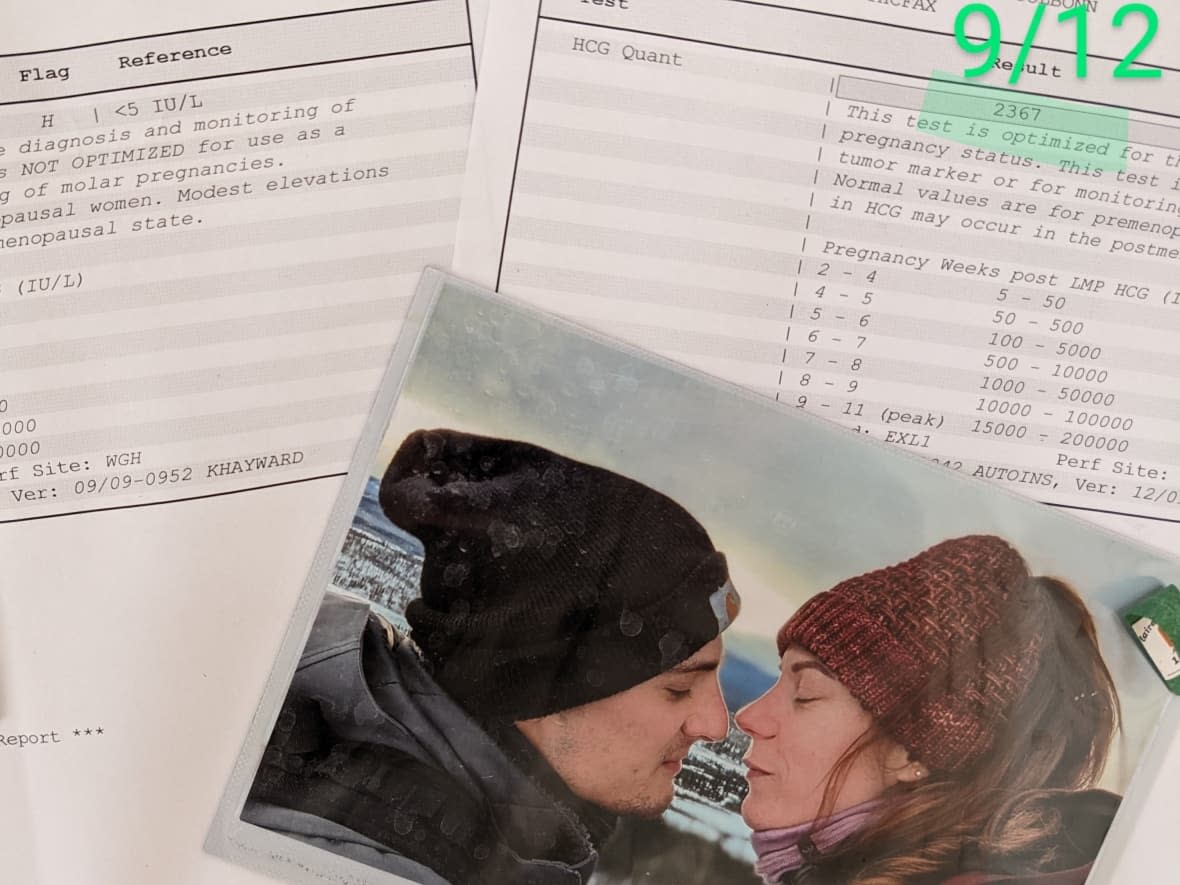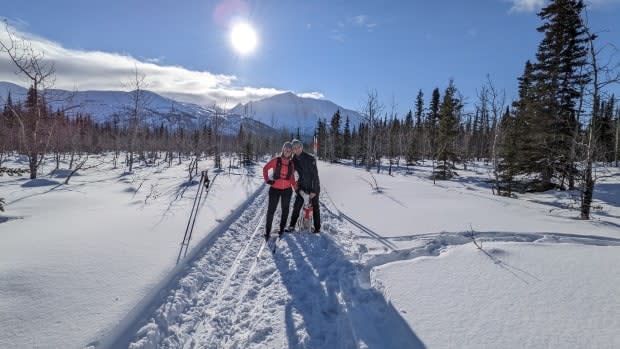People seeking fertility treatment in the Yukon call for more government support

When Amélia Koeppel started trying to conceive with her partner, she didn't predict they'd eventually end up with a $30,000 bill.
Koeppel and her partner first reached out to a doctor in September 2021. The Whitehorse couple had been trying to get pregnant, but had been unsuccessful and suspected they might be having fertility issues. They went through blood tests, ultrasounds and semen tests, all of which came back clear. They were told to keep trying.
But a few months later, in December 2021, Koeppel went in for another test. The results showed her tubes were blocked. Soon after, a laparoscopy revealed she also had endometriosis, a painful condition where tissue resembling the uterine lining grows outside the uterus.
Those results confirmed the couple would be unable to conceive naturally, and they started looking at other options.
"That's when we first talked about IVF," Koeppel said. "And we discovered that there really is no clinic in the North."
During IVF, which stands for in-vitro fertilization, an egg is fertilized outside the body then placed in the uterus. It's a common option for people experiencing infertility.
To get IVF in Canada, people are typically referred to a private clinic. That alone can be a costly and arduous process. But in the Yukon, there are no fertility clinics, so people seeking the treatment must travel south to get it.
High cost for Yukoners
Koeppel and her partner travelled back and forth to Vancouver five times in the spring for treatment. The first trip, which would confirm Koeppel's infertility, was covered by the Yukon's health plan. But the treatment itself and travel for it was not covered, Koeppel said.

Koeppel estimated the clinic fees alone amounted to around $17,000, not including the cost of medication, which also cost thousands of dollars. On top of that, they paid for at least five trips back and forth from Vancouver, one of them for a full week's stay. Her partner's insurance plan covered some of the medication costs. Otherwise, the couple paid out of pocket for everything.
Koeppel said she was shocked at the price tag.
"You're just a person with a credit card," Koeppel said. "And on top of the stress of is it going to work or not, it's, 'how am I going to find the money for the next step?' All the time. It's a lot of stress."

Most clinics that do IVF in Canada are privately-run, but people seeking the treatment in major centres can often get it done locally. Like in the Yukon, many provinces and territories in Canada don't offer any coverage for the procedure, but some pay for parts of it.
In Ontario, the first cycle of IVF is covered, but that doesn't include the cost of medication. Manitoba's Fertility Treatment Tax Credit covers 40 per cent of treatment costs per year up to $8,000. New Brunswick provides a one-time grant of $5,000 for people seeking the treatment.
Not the only one
There are other stories like Koeppel's.
April Mikkelsen and her husband, who live in Whitehorse, struggled with infertility for ten years. They were able to have two successful pregnancies after seeking IVF treatment.
Mikkelsen estimates the total cost was somewhere between $25,000 and $30,000. IVF is not guaranteed to result in a successful pregnancy, and Mikkelsen said the process was stressful at times.
"You're away from home, it's cost you the majority of your savings," Mikkelsen said. "Emotionally, physically, it's quite taxing."
Mikkelsen also said she'd like to see better financial support for the treatment.
Calling for more support
There is a petition circulating calling on the Yukon government to determine a funding model for fertility treatment.
In an email, a spokesperson for the Yukon's Department of Health and Social Services said the Yukon government had expanded the medical travel eligibility to cover consultation with a fertility specialist and initial fertility testing, as well as some follow-up tests.
"We recognize this does not cover all the high costs of receiving ongoing fertility treatments," the statement reads.
Koeppel said she hopes the territory will provide more funding for treatment so that other people don't experience the same financial stress.
"I got lucky to find the money," she said. "But I know some people just have to stop when they are going through it because they cannot afford it anymore. And that is really sad."


